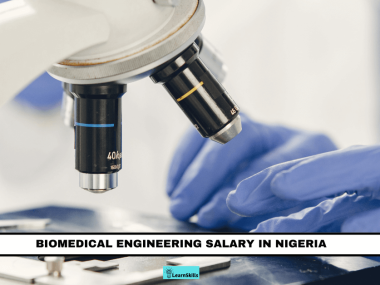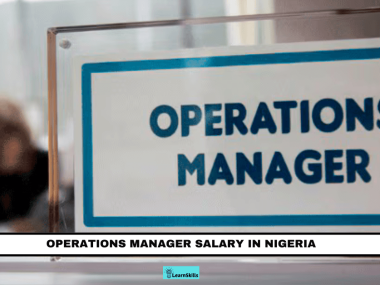Neurosurgeons in Nigeria play a crucial role in the healthcare system, providing specialized care for complex brain and spine issues. Their skills are in high demand.
In 2025, a neurosurgeon in Nigeria can earn between ₦8 million to ₦25 million annually, depending on experience and other factors. This income reflects the challenges and rewards of the medical field, showcasing why neurosurgery is one of the most respected specialties.
The salary of neurosurgeons varies significantly based on experience, location, and the type of healthcare facility. In urban areas, salaries may trend higher due to the increased demand for advanced medical care.
Understanding these factors can help you get a clearer picture of what to expect in this profession.
Overview of Neurosurgery in Nigeria
Neurosurgery is a vital medical field that deals with disorders of the central nervous system and the peripheral nervous system. In Nigeria, this specialty is growing, with dedicated neurosurgeons addressing complex medical challenges.
You can find neurosurgeons working in both the public and private sectors. Public hospitals often have limited resources, which can impact the quality of care. In contrast, private hospitals may offer better facilities, but they come at a higher cost for patients.
The path to becoming a neurosurgeon in Nigeria involves extensive residency training. This training is for six years and includes hands-on experience in various neurosurgical procedures.
After completing training, some doctors choose to further specialize, such as in pediatric neurosurgery.
With the increasing demand for neurosurgical services, many medical schools are now emphasizing the importance of this specialty. As you explore this field, consider the vital role neurosurgeons play in treating conditions like brain tumors, spinal disorders, and traumatic injuries.
Neurosurgeon Salary Structure in Nigeria
The salary structure for neurosurgeons in Nigeria varies based on several factors. You will find that earnings differ significantly between those working in public and private sectors and among various medical specialties.
Factors Influencing Earnings
Several factors determine how much you can earn as a neurosurgeon in Nigeria. Your experience and level of specialization play crucial roles. Neurosurgeons with more years in practice generally earn higher salaries.
Location is also important. For instance, neurosurgeons in urban areas like Lagos or Abuja often have better income opportunities than those in rural regions.
The CONMESS scheme, which applies to medical professionals in Nigeria, affects salaries. This means that your income can differ based on government policies and adjustments in minimum wage rates.
Public Sector Versus Private Sector Salaries
In the public sector, neurosurgeons can expect salaries of ₦11,900,000 to ₦12,000,000 per year, translating to about ₦990,000 per month. Senior consultant neurosurgeons also earn approximately ₦1,000,000 monthly after taxes.
In contrast, private-sector salaries can be significantly higher. Neurosurgeons working in established private hospitals might earn between ₦8,000,000 and ₦20,000,000 annually. This variation depends on the hospital’s reputation, patient base, and negotiation skills.
Comparative Analysis with Other Medical Specialties
When you compare neurosurgeon salaries to those of other medical specialties, neurosurgeons usually rank among the top earners. For example:
- Orthopedic surgeons: Average around ₦10,000,000 annually.
- Urologists: Typically earn about ₦9,500,000 per year.
- Plastic surgeons: Often earn more, ranging from ₦12,000,000 to ₦25,000,000 annually.
- Anesthesiologists: Earn around ₦8,000,000 to ₦15,000,000 yearly.
This data shows that while neurosurgeons are well-compensated, certain specialties may offer even higher financial rewards based on skills and demand in the healthcare market.
Professional Responsibilities and Career Progression
Neurosurgeons play a crucial role in diagnosing and treating conditions related to the brain, spine, and nervous system. Their responsibilities and opportunities for career advancement are diverse and significant in the medical field.
Roles and Responsibilities of Neurosurgeons
As a neurosurgeon, you are responsible for performing complex surgical procedures. This includes operations on the brain, spinal cord, and peripheral nerves. You also conduct thorough assessments and analyses to diagnose patients’ conditions.
In addition to surgery, you will interpret diagnostic tests such as MRI and CT scans. Patient care, which involves counseling patients on treatment options and postoperative care is a vital aspect of the role.
Maintaining accurate medical records and collaborating with other healthcare professionals is essential.
You will work closely with neurologists, radiologists, and nurses to ensure comprehensive patient care. Continuing education is important to stay updated with advancements in techniques and technology.
Advancement and Specialization Opportunities
Career progression for neurosurgeons can be substantial. After completing residency training, you may specialize in areas like pediatric neurosurgery, neuro-oncology, or spinal surgery.
Many neurosurgeons pursue fellowships to gain advanced skills in these specific fields. This can enhance your expertise and potentially lead to roles in academia or research.
Your responsibilities may expand as you gain experience, leading to positions like department chair or director of a surgical unit. Networking and professional organizations also play a vital role in career advancement.
By attending conferences and engaging with peers, you can discover new opportunities and stay connected within the field.
Challenges and Opportunities in Nigeria’s Neurosurgery Field
Some of the challenges in the neurosurgery field in Nigeria include healthcare system limitations and a growing need for specialized care. Understanding these factors is essential for anyone interested in the current landscape of neurosurgery in the country.
Healthcare Challenges in Nigeria
The Nigerian healthcare system struggles with deep-rooted issues. Access to care is limited, particularly in rural areas. This makes it difficult for patients with serious conditions, like tumors or strokes, to receive timely treatment.
The neurosurgeon-to-patient ratio is critically low. Many professionals migrate to developed countries for better opportunities, resulting in a shortage of trained neurosurgeons.
Public health funding is often inadequate. This affects infrastructure, medical supplies, and overall patient care. Patients face long wait times and limited access to facilities. These barriers hinder effective treatment for conditions such as vascular disorders and trauma.
Growing Demand for Specialized Care
Despite the challenges, there is a growing demand for specialized neurosurgical care in Nigeria. Conditions like congenital anomalies and trauma require expert intervention.
As the population increases, so does the need for skilled neurosurgeons. Many hospitals are beginning to realize the value of investing in specialized services. Awareness campaigns help educate people about neurological conditions. This creates a push for better medical services.
There is also a notable rise in female neurosurgeons, which promotes gender diversity in a historically male-dominated field. This shift can lead to improved patient care and increased recruitment of young talent into neurosurgery.
Investing in training and infrastructure will help meet the rising healthcare demands.










